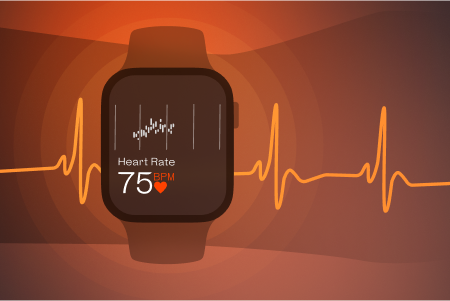


Welltory — All-in-One Wellness App.




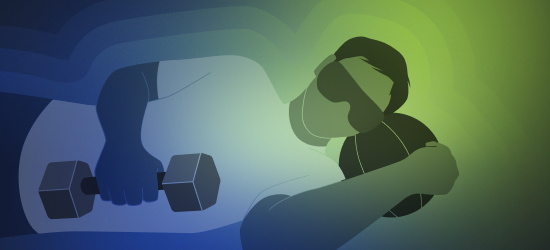
The effort to lose weight is a prevalent issue around the world. According to YouGov Global Profiles, 52% of global consumers across 43 surveyed markets report that they are “usually trying to lose weight.”. Let’s see if they will be able to do it in their sleep!
It can come as a surprise to many people that we actually burn calories while we sleep. Despite the fact that sleeping doesn’t require as much energy as other activities throughout the day, it’s still a time of activity for our brain and other bodily functions. The amount of calories burned during sleep depends on various factors, such as diet, exercise, and sleep quality. Understanding these factors and their influence on metabolism can be helpful if you’re struggling with weight management or energy levels. By gaining insight into these factors, you will strengthen your control and improve your health.
The number of calories burned during sleep varies depending on several factors such as age, sex, body composition, and basal metabolic rate (BMR). Basal metabolic rate refers to the amount of energy the body uses to perform basic functions such as breathing and maintaining body temperature. On average, an adult burns between 0.67 and 0.92 calories per minute during sleep. According to Harvard Medical School, this translates to approximately 40-55 calories per hour, or 320-440 calories during an 8-hour sleep period. However, this is just an estimation and the actual number of calories burned during sleep can vary depending on individual factors.
It is also worth noting that while the number of calories burned during sleep may seem low, it is still an important part of overall energy expenditure. In fact, studies have shown that getting enough sleep can help to regulate hormones that control appetite and metabolism, which can, in turn, affect weight management.
The majority of calorie burn during sleep comes from the body’s basic functions, such as maintaining body temperature and breathing, which occur during all stages of sleep.
Generally, the body burns the most calories during rapid eye movement (REM) sleep. During REM sleep, the brain is highly active and the body undergoes physiological changes similar to wakefulness. This increased brain activity and physiological activities result in a higher metabolic rate, leading to a higher calorie burn. The research also shows that glucose utilization is higher in REM sleep than in non-REM, when it’s at the lowest. If you’re consistently having trouble sleeping or suspect that you have a sleep disorder such as sleep apnea or insomnia, consider tracking your sleep to improve your REM sleep and sleep in general.
While REM sleep may result in a slightly higher calorie burn than other sleep stages, the total amount of calories burned during sleep is still relatively low compared to other activities. It’s also worth noting that the amount of time spent in each sleep stage can vary greatly depending on individual factors such as age, sex, and overall health. For example, infants spend more time in REM sleep than adults and older adults tend to have less REM sleep overall.
While sleep is an important part of overall calorie expenditure, it should not be relied upon as the sole method (ah we wish!) for burning calories or managing weight. Engaging in regular physical activity and maintaining a healthy diet are still the most effective ways to manage weight and support overall health.
In order to determine the number of calories that the body burns while sleeping, it is important to calculate the basal metabolic rate. This is not a simple calculation as various factors can influence BMR. Measuring it accurately requires specialized equipment to determine the amount of oxygen a person breathes in and out over a specific period. However, an estimation of BMR can be made using the Harris-Benedict equation. The equation takes into account a person’s age, weight, height, and sex to estimate their BMR.
It is not possible to calculate how long you need to sleep to burn a specific number of calories because the amount of calories burned during sleep varies depending on individual factors. It is very tempting to give you an average amount and say that to burn 100 calories, you would need to sleep for approximately 1-3 hours, whereas to burn 1000 calories, it would require approximately 20 hours of sleep, but this is simply not true and we are not here to sugarcoat it.
Let’s look at factors that can impact the amount of calories burned during sleep:
Age: Infants and young children burn more calories during sleep than adults due to the higher energy demands of growth and development.
Sex: Men tend to have a higher basal metabolic rate than women, which can result in a higher calorie burn during sleep.
Body composition: People with a higher percentage of muscle mass typically have a higher BMR and burn more calories during sleep than those with a higher percentage of body fat. Moreover, higher muscle mass is associated with better insulin sensitivity, which also helps to maintain a healthy weight.
Health status: Certain health conditions such as thyroid disorders or sleep apnea can impact metabolism and result in a higher or lower calorie burn during sleep.
Sleep duration and quality: Sleep deprivation and poor sleep quality can negatively impact metabolism and result in a lower calorie burn during sleep.
Environmental temperature: Sleeping in a cooler environment can potentially increase the body’s metabolic rate and result in a slightly higher calorie burn during sleep.
While these factors can impact the amount of calories burned during sleep, the total number of calories burned is still relatively low compared to other activities such as exercise. So no worries, you will not sleep yourself thin!
Get Welltory
for better sleep
Get Welltory
for better sleep
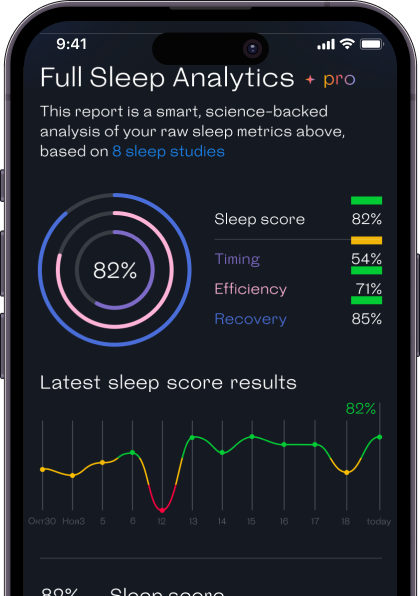
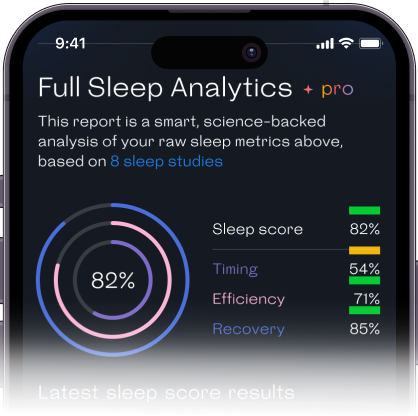

Simple maths might suggest that the more you sleep, the more calories you burn but this is not really the case. In fact, oversleeping can potentially contribute to weight gain. While getting enough sleep is important for maintaining a healthy weight, too much sleep may disrupt the body’s natural sleep-wake cycle and metabolism, leading to weight gain.
Oversleeping can also lead to changes in hormones that regulate appetite and metabolism, such as leptin and ghrelin. These changes may increase hunger and appetite, leading to overeating and weight gain. Research suggests that both short and long sleeping times may lead to an increased risk of future body weight and fat gain in adults.
It’s important to remember that oversleeping alone is not necessarily a direct cause of weight gain. There may be other factors at play, such as underlying health conditions or lifestyle factors that contribute to both oversleeping and weight gain. If you worry about your sleep affecting your weight loss journey, try tracking it to see how well and how much you sleep.
Exercise can help burn calories and improve overall metabolic rate, which can potentially lead to burning more calories during sleep. When you exercise, your body uses energy to perform physical activity, which raises your metabolism. This means your body continues to burn calories at an increased rate even after you finish exercising, a phenomenon known as the “afterburn effect” or “excess post-exercise oxygen consumption (EPOC).” EPOC is the amount of oxygen your body consumes after exercise to return to its normal metabolic rate, and during this period, your body is burning calories at a higher rate.
It is generally not recommended to exercise just before bed because exercise can increase your heart rate, body temperature, and metabolism, which can make it harder for you to fall asleep. Moreover, exercising before bed can increase levels of the stress hormone cortisol, which can disrupt sleep.
Instead, it’s recommended to aim for a consistent exercise routine earlier in the day or in the evening, at least 2-3 hours before bedtime. This allows your body time to cool down and return to its normal state before going to sleep. Additionally, regular exercise improves sleep quality and quantity, so it’s beneficial to incorporate exercise into your daily routine for overall health and wellness. It’s important to listen to your body and find a time that works best for you to exercise. Some people find that exercising in the morning energizes them for the day, while others prefer to exercise in the evening to unwind from the day. Experiment with different times to find what works best for your schedule and body.
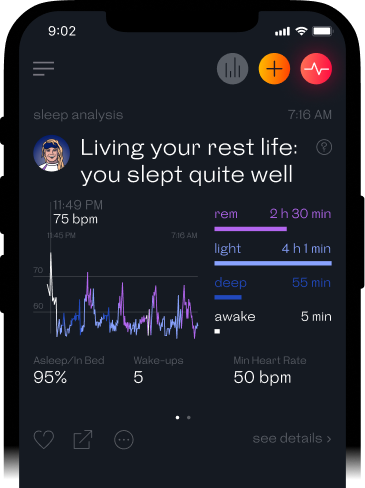
Welltory’s algorithm takes into account a lot of factors and is able to provide you with personalized recommendations based on your heart rate and heart rate variability metrics, sleep, calorie intake, screen time, stress, and more. You will be able to see how your body reacts to changes in your habits over time and adjust your lifestyle further.
Welltory Team, 15 June. 2023
 App Store
App Store
 Google Play
Google Play
 Huawei AppGallery
Huawei AppGallery
 Galaxy Store
Galaxy Store

